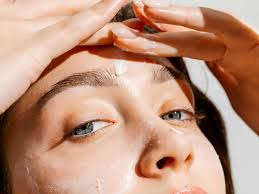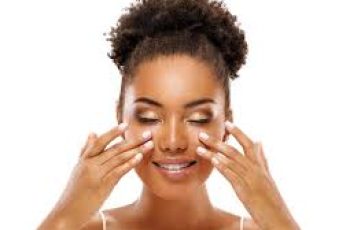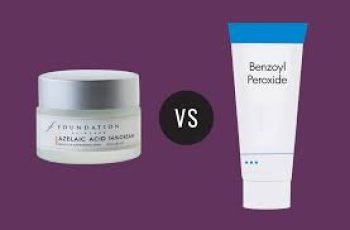Hydration vs. Moisturization: A Dermatologist Explains the Difference
Imagine this: You wake up and your skin feels painfully dry. Or is it dehydrated? It can be hard to tell, just as it can be hard to determine whether you need hydration or moisturization. Although the words may seem like synonyms, they are very different in the world of skin care. It can all be very confusing. That’s why we asked two board-certified dermatologists—Lindsey Zubritsky, MD, and Kenneth Mark, MD—to break it down for us.
Read on to learn the key differences between hydration and moisturization (and find out how to determine what your skin needs).
What does it mean to hydrate your skin?
Hydration of the skin means increasing its water content. Imagine hydrating your skin like taking a refreshing sip of water from a Stanley cup to quench your thirst. To do this, Zubritsky recommends looking for ingredients that attract and retain water. “This typically affects the outermost layer of the skin, plumping it up,” she explains.
What does it mean to hydrate your skin?
Moisturizing focuses on improving and strengthening the skin barrier, Zubritsky explains, which typically leaves skin feeling soft and supple. It also helps lock moisture into the skin.
Mark believes that hydration and hydration are not mutually exclusive. However, when we think of the typical “moisturizer,” we think of products that smooth or soften the skin.
Determine what your skin needs
The key to deciding next steps is to determine whether your skin is dry or dehydrated, Zubritsky says. “If your skin is dehydrated, then your skin is lacking water and may need hydrating ingredients to replenish moisture,” she says. “But if your skin is dry, your skin is lacking oil and may need a moisturizer to replenish moisture.”
“However, these are not always mutually exclusive and there is significant overlap, especially when it comes to the symptoms you experience and the moisturizer you choose,” she continues. Dry skin may have a rough texture, flake, redness, or itchiness. Dehydrated skin, on the other hand, can feel tight, look dull, and make fine lines and wrinkles more noticeable.
To determine if your skin is dehydrated, she recommends doing the pinch test. “Gently pinch the skin on your cheeks or hands. If the skin is slow to return to normal, it’s likely dehydrated.”
How to moisturize your skin
“When moisturizing your skin, it’s important to pay attention to ingredients such as humectants,” advises Zubritsky. Humectants attract and absorb water (usually from the environment) and are found in serums or moisturizers. Mark and Zubritsky highlight hyaluronic acid as one of the best humectants for hydrated, plump skin. “One of my favorites is Neutrogena Hydro Boost Water Cream ($20),” says Zubritsky. “It contains hyaluronic acid, which delivers nine times more moisture than untreated skin. It really leaves skin looking hydrated, plump, radiant, and dewy.”
“Another of my favorite ingredients is lactic acid, which acts as a humectant to increase the water content of the skin,” adds Mark. Additionally, lactic acid — an alpha hydroxy acid (AHA) — is also ideal for gentle exfoliation without irritating those with sensitive skin.
How to moisturize your skin
“When moisturizing your skin, look for ingredients that strengthen and support the skin barrier, such as emollients or occlusive ingredients,” advises Zubritzky. She recommends ingredients like ceramides, dimethicone, shea butter, lanolin, or petrolatum. “One of my favorite moisturizers is Tatcha The Dewy Skin Cream Enriching Moisturizer ($72),” she tells us. “It’s a rich, luxurious moisturizer with dimethicone, squalane, and antioxidants to lock in moisture.”
“In the world of ingredients and dermatology, carriers are important,” says Mark. “Very dry, cracked skin often requires an ointment with occlusive physical barrier protection, such as Aquaphor Ointment ($18).”
DQH Knowledge drop: In your 20s, your skin cell turnover decreases. (Cell turnover is a key component in keeping your skin youthful.) You know what else slows down? Your collagen production. Starting in your 20s, collagen decreases by about 1 percent per year. Should you want to prevent fine lines and wrinkles, start by eliminating behaviors that contribute to premature aging. “If it’s bad for you, it’s bad for your skin,” says dermatologist Michel Somenek.
“Cigarette smoking reduces blood flow to the skin and causes premature wrinkling and a dull skin texture. Making the repeated pursed motion to inhale can also cause smoker’s lines. Alcohol and recreational drugs are toxins for the skin that damage its cellular structure and DNA,” Somenek tells us. “The faster you eliminate vices while you are young, the better chance your skin and body have to recuperate.” Also, adopting an anti-aging routine in your 20s is key. After all, the best offense is a good defense. We spoke to Somenek and experts Joshua Ross and Audrey Kunin to find out more.
Keep reading for the best anti-aging products for your 20s, according to skincare professionals.
Sunscreen
“We all know that the sun is the number one cause of skin aging and starting the prevention in your 20s is very important,” Ross says. “The majority of your sun damage won’t start to appear until you’re in your 30s, so don’t wait until you see it surface or you’ll be behind the curve. Stay ahead of it with a good-quality zinc-based sunscreen worn daily.”
Farmacy Green Defense Daily Mineral Sunscreen
An invisible sunscreen with SPF 30, plus botanical extracts meant to protect skin with tons of antioxidants. Bonus: It’s clean and fine to use under makeup.
Bareminerals Complexion Rescue™ Tinted Moisturizer Broad Spectrum SPF 30
Although we recommend you use your SPF and moisturizer separately, we also understand moments when you don’t have time or energy for that extra step. For those times, this bareMinerals moisturizer is a great thing to have on hand.
Vitamin C Serum
“A great introduction to anti-aging is to start with a vitamin C serum in your morning skincare routine,” Ross says. “It’s a powerful antioxidant that will neutralize free radicals and brighten the skin.” He adds that it’s a great way to counteract the effects of the sun’s harmful rays, which, as previously mentioned, are among the biggest causes of premature aging.
Drunk Elephant C-Firma™ Vitamin C Day Serum
The Drunk Elephant C-Firma is a lightweight serum that promises to give skin a glow by combining the brightening powers of vitamin C with ferulic acid, l-ascorbic acid, and vitamin E. The included sodium hyaluronate is meant to replace hydration loss, so you shouldn’t have to deal with any irritation.
Sunday Riley C.E.O. Rapid Flash Brightening Serum
This potent serum is jam-packed with vitamin C (15 percent, to be exact), which means it’s a potential superstar at both brightening skin and dousing it in antioxidants.
Peptides
Using peptides on your skin has many benefits, says Somenek. “The skin barrier is what defends the body against pollution, UV rays, bacteria, and toxins. It can be damaged by several everyday factors. Using topical peptides aids in building a stronger barrier,” he says. “Peptides comprise elastic fibers, which are a type of protein. These fibers help to make skin appear taut and firm. Peptides can also help repair damaged skin, relieve inflammation, and even out skin tone. Some peptides can kill acne-causing bacteria that is common in 20-somethings.”
Kunin agrees, saying, “Peptides are an excellent entry point for supporting collagen.” She recommends looking for face and eye treatments that contain these collagen-boosting powerhouses.
Charlotte Tilbury Magic Eye Rescue Cream
This Charlotte Tilbury super-emollient eye cream has a base of coconut oil and shea butter (read: it’s incredibly hydrating). Botanicals plus peptides are meant to help reduce dark circles and boost collagen, respectively.
This creamy moisturizer serves up potent collagen-boosting peptides and pycnogenol, and antioxidant-rich vitamin C. “Instead of sitting on top of the skin, peptides penetrate the outer layer so they go deep. The ‘signals’ they send tell the cells to produce elastin and collagen, which are needed for youthful-looking skin,” explains Somenek.
At-Home Peel Pads
Remember that skin cell turnover fiasco we talked about earlier? One way to help support it is by exfoliating. “Exfoliation is important to help keep skin fresh and luminous,” Kunin says. She recommends using at-home peel pads as an easy and effective way to exfoliate.
“The goal in your 20s is to fight the slowing pace of cell turnover. It is wise to use products that gently exfoliate, yet still remove oil and other impurities. Products that have Alpha Hydroxy Acids (AHA) or Beta Hydroxy Acids (BHA) are a good choice.”
According to Somenek, you should only exfoliate two to three times a week. “People of all ages are guilty of over-exfoliating and that can be too much of a good thing,” he says.
Dermadoctor Kakadu C Intensive Vitamin C Peel Pad
A few swipes of this Derma Doctor powerful peel pad promise to leave your skin glowing and smooth, thanks to the seven (yes, seven) types of chemical exfoliants, including AHA and BHA. It also contains vitamin C via Kakadu plum extract for added brightening and antioxidant protection.
KEY INGREDIENTS Kakadu plum extract is sourced from the Kakadu plum, a fruit grown in northern Australia. It contains vitamin C, which restores the skin’s natural barrier, increases collagen production, and soothes irritation.
Dr. Dennis Gross Skincare Alpha Beta® Universal Daily Peel Pads
These are the gold standard of peel pads, with a cult following and over 900 five-star reviews on Sephora. They’re easy to use and contain a blend of anti-aging exfoliating acids.
Emollient Night Cream
“In your 20s, you need to start upping the hydration in your skincare routine. You may have been cautious of over-moisturizing because of acne in your teens, but as you enter your 20s, your skin transitions and becomes drier,” Ross says. “I recommend an emollient night cream added into your evening skincare regimen.”
“Twenty-somethings need to make sure that they are not using creams that will clog their pores and cause excess oil production,” says Somenek. Opt for non-comedogenic products.
Cerave Skin Renewing Night Cream
One great choice is the CeraVe Skin Renewing Night Cream, which is a non-comedogenic night cream that leaves skin soft and glowy. It combines the moisturizing powers of ceramides and hyaluronic acid.
RoC Retinol Correxion Max Hydration Creme
“The best night cream ingredients contain retinol, benzoyl peroxide, and/or salicylic acid or hyaluronic acid. The goal is to moisturize, yet remove excess oil,” says Somenek. This Roc Retinol Correxion cream fits the bill as it contains both hyaluronic acid and retinol so it promises to moisturize while also being non-comedogenic.



